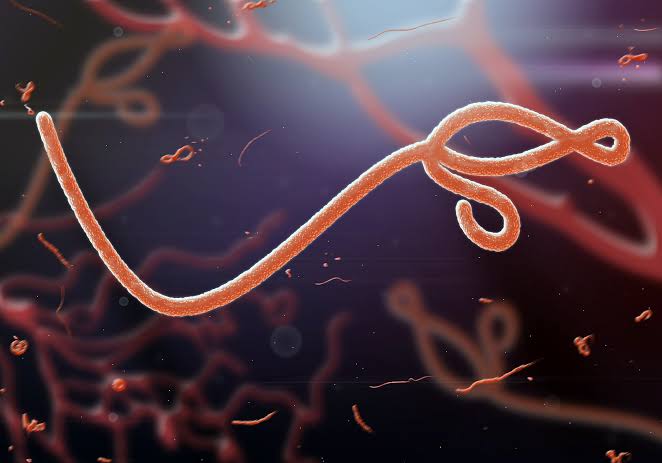ABUJA: As the Democratic Republic of Congo battles a fresh outbreak of the Ebola Virus Disease (EVD), the Federal Government of Nigeria has stepped up surveillance and health screening at all points of entry to prevent the virus from reaching the country.
The Director of Port Health Services at the Federal Ministry of Health and Social Welfare, Dr Akpan Nse, revealed in an exclusive interview that Nigeria has intensified its border control operations, with added personnel deployed to support surveillance efforts across airports, land borders, and seaports We have intensified surveillance at all points of entry airports, land borders, and seaports.
Every inbound traveller from Congo is thoroughly screened and required to fill out health declaration forms, Dr Nse said.
He added that Nigeria’s screening infrastructure has been reactivated, with portals set up to monitor all passengers arriving directly or in transit from the DRC.Even those transiting through Congo are being screened.
With support from the WHO, we’ve also recruited more staff to ensure no suspected case goes undetected. Some private organisations have partnered with us to maintain the functionality of thermal scanners at the airports, he added.
Health authorities in the DRC declared an Ebola outbreak in Kasai Province following the confirmation of the Zaire strain of the virus on September 3, 2025, by the National Institute of Biomedical Research in Kinshasa.
So far, 28 suspected cases and 16 deaths including four health workers have been reported.
The World Health Organization (WHO) has released $500,000 from its Contingency Fund for Emergencies to support response efforts in the DRC.
WHO teams are already on the ground in Kasai. We are tracing contacts, collecting samples, and providing technical support in infection prevention, treatment, and surveillance, said WHO Director-General, Dr Tedros Adhanom Ghebreyesus, during a media briefing on Friday.
He also confirmed that 2,000 doses of the Ebola vaccine, prepositioned in Kinshasa, are now being deployed to vaccinate frontline health workers and close contacts of confirmed cases.
Given Nigeria’s high travel volume with Central Africa, health experts have called for heightened vigilance.
Dr Oladipo Kolawole, Associate Professor of Infectious Diseases and Genomics at Adeleke University, Osun State, emphasized the need for coordinated inter-agency response and proactive public health measures.
Everyone entering Nigeria, especially from DRC, must declare their travel history. Our surveillance system must remain tight. I’m confident in our institutions NCDC, NIMR, and our network of laboratories are better prepared now than in past outbreaks, he said.
Dr Moses Adewumi, a virologist at the University College Hospital, Ibadan, also stressed the urgency of activating robust surveillance systems and adhering to strict travel protocols.
We cannot stop international travel, but we must ensure that proper screening is done at every port of entry. Early detection is our strongest defense, he said.
He called for coordinated national efforts to strengthen laboratory capacity and emergency response teams, noting, This is a critical time for us to demonstrate our preparedness.”
Dr Iorhen Akase, Head of the Infectious Diseases Unit at Lagos University Teaching Hospital (LUTH), highlighted that Ebola is only transmissible once a person begins to show symptoms. He urged communities to remain alert and to refer anyone with symptoms to health facilities immediately.
Community members must act quickly when they notice unusual illness. Government scanners at the borders are effective, but everyone must play a role. If someone is sick, they must go to the hospital without delay, he said.
Dr Akase emphasized the importance of grassroots surveillance and public cooperation in reporting suspected cases promptly
Ebola Virus Disease is a rare but often fatal illness in humans, caused by infection with the Ebola virus.
It is transmitted to humans from wild animals, such as fruit bats, and spreads through direct contact with blood, secretions, or other bodily fluids of infected individuals, as well as contaminated surfaces and materials.
Since the first known outbreak in 1976, the DRC has experienced 15 outbreaks, including the most recent one in Kasai. The last outbreak occurred in Equateur Province in April 2022 and was contained within three months.



